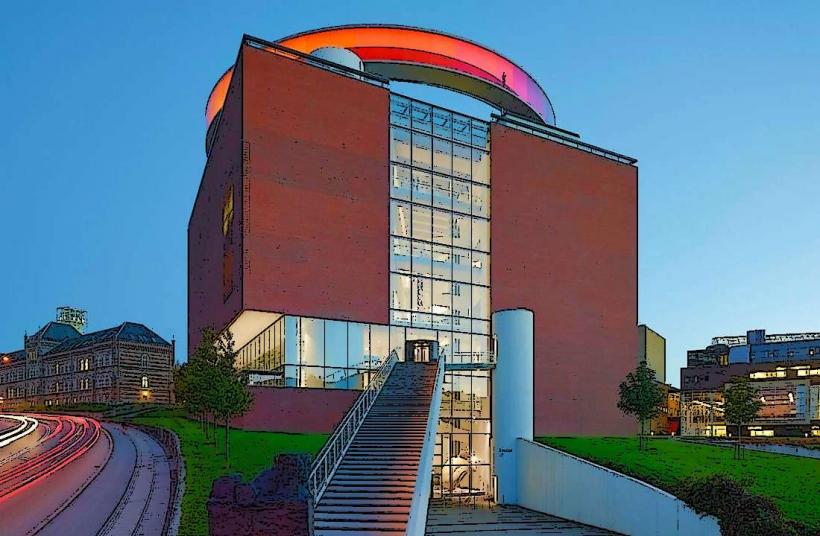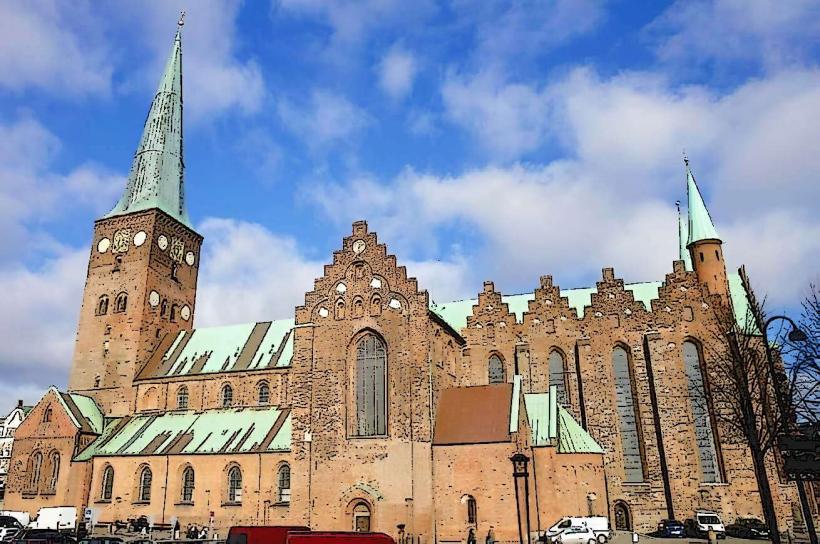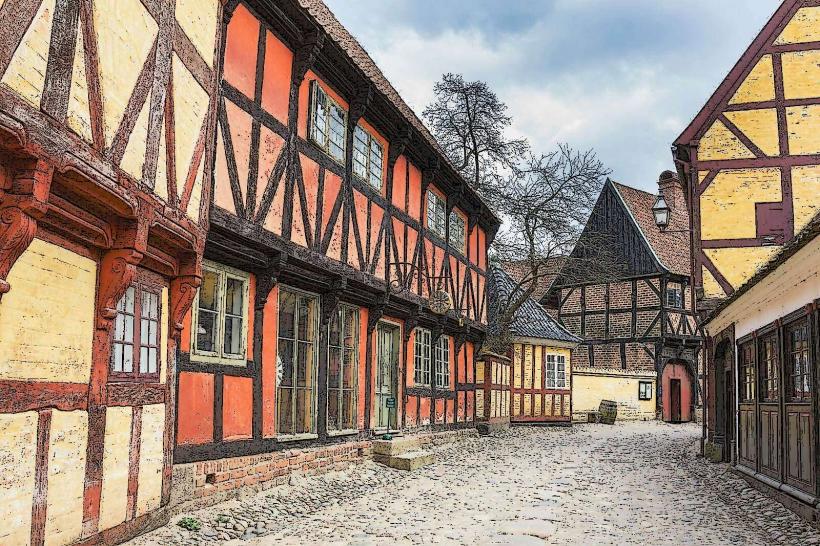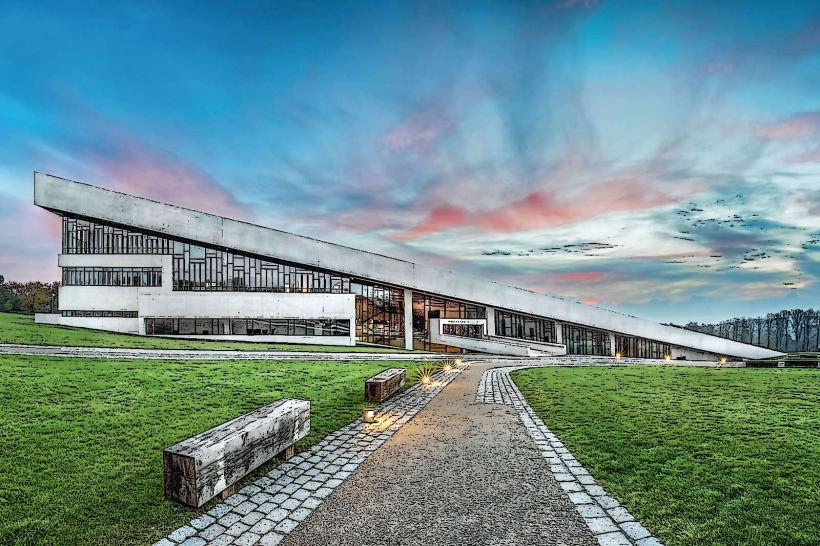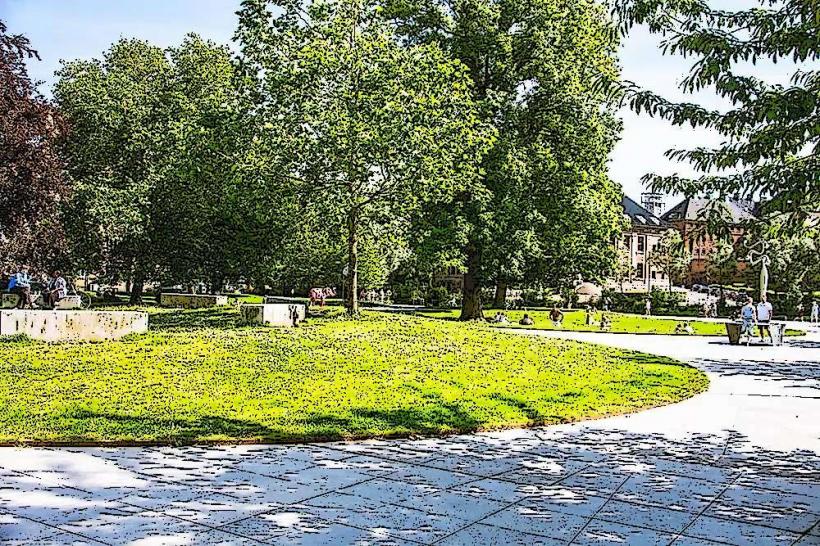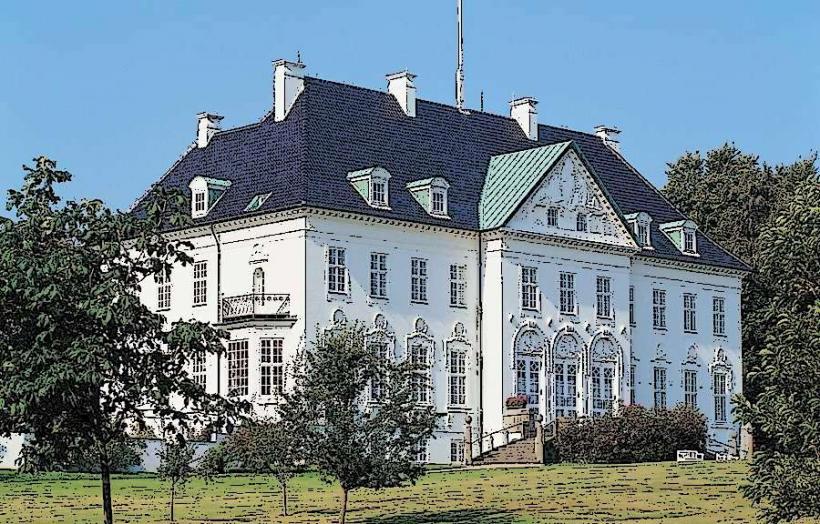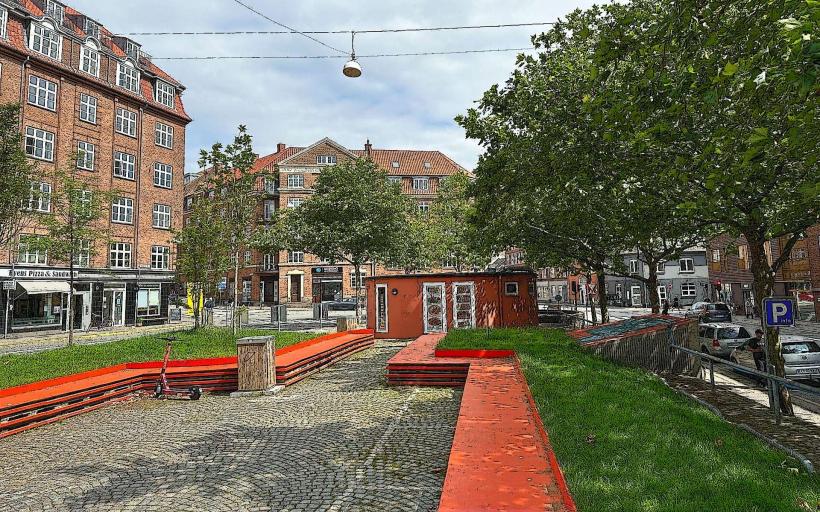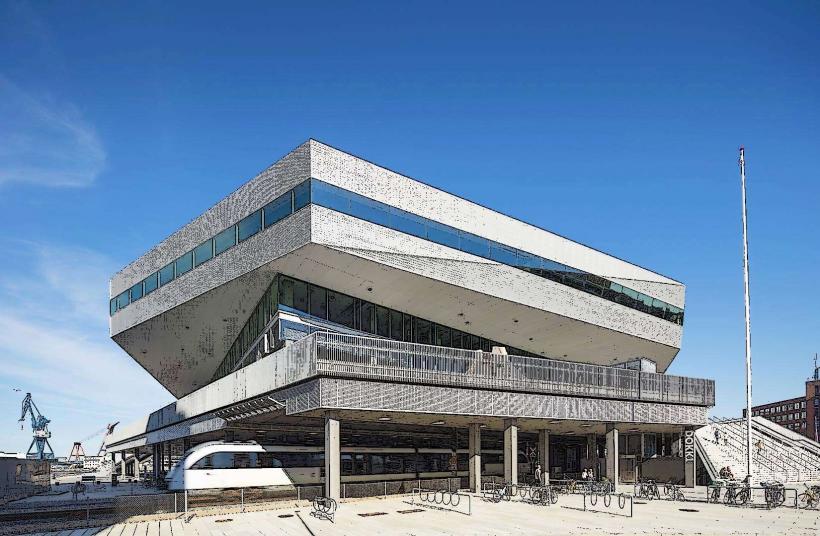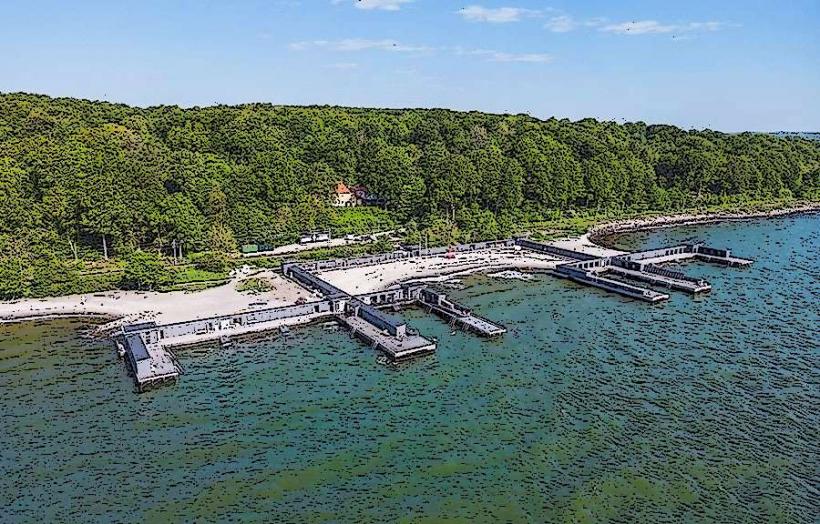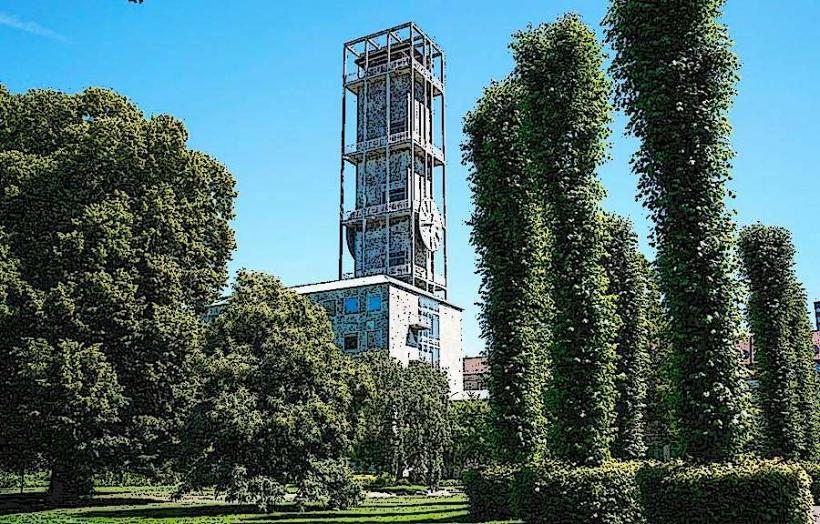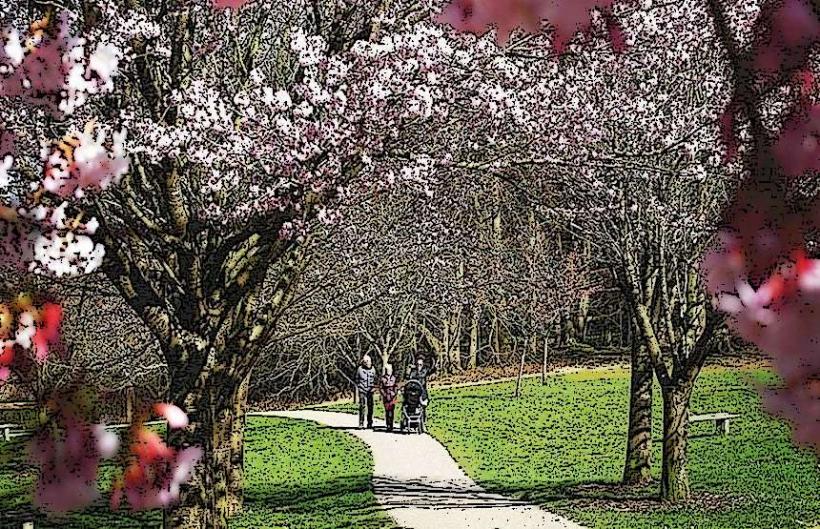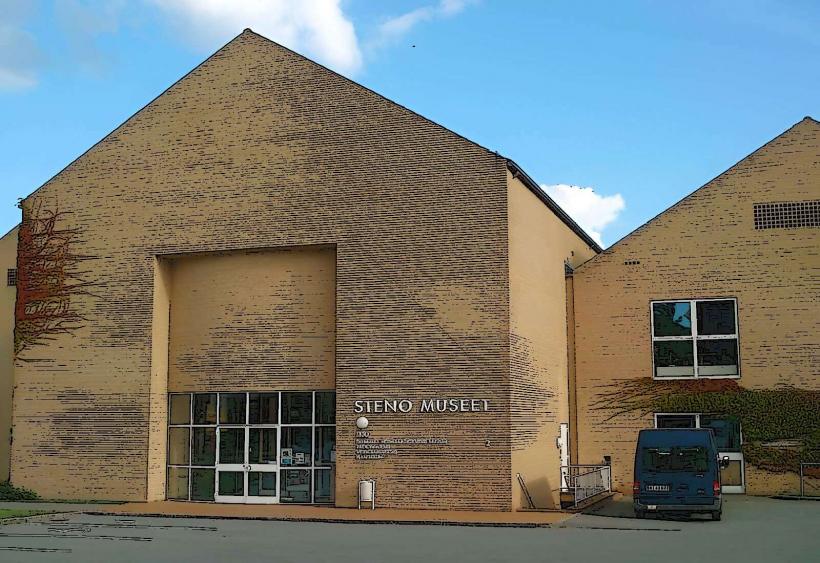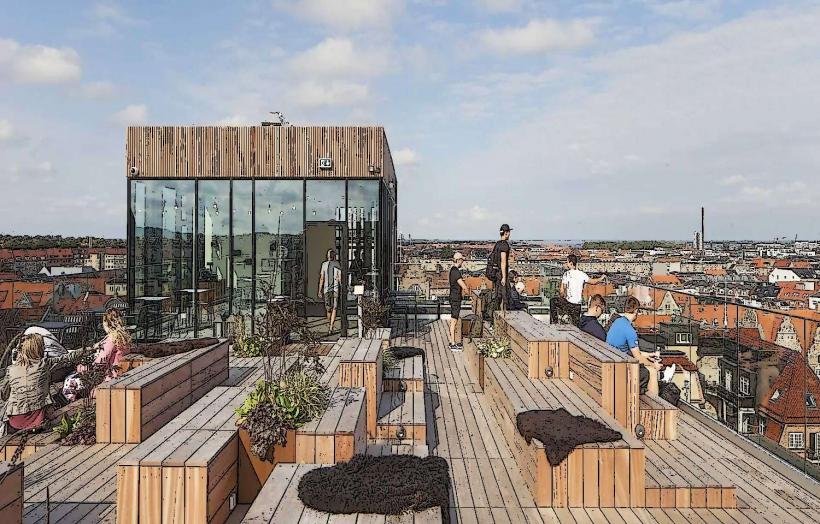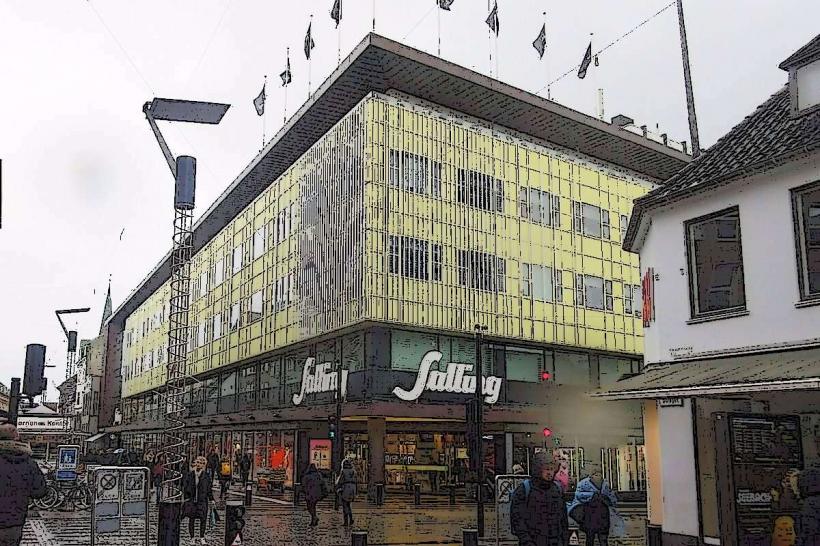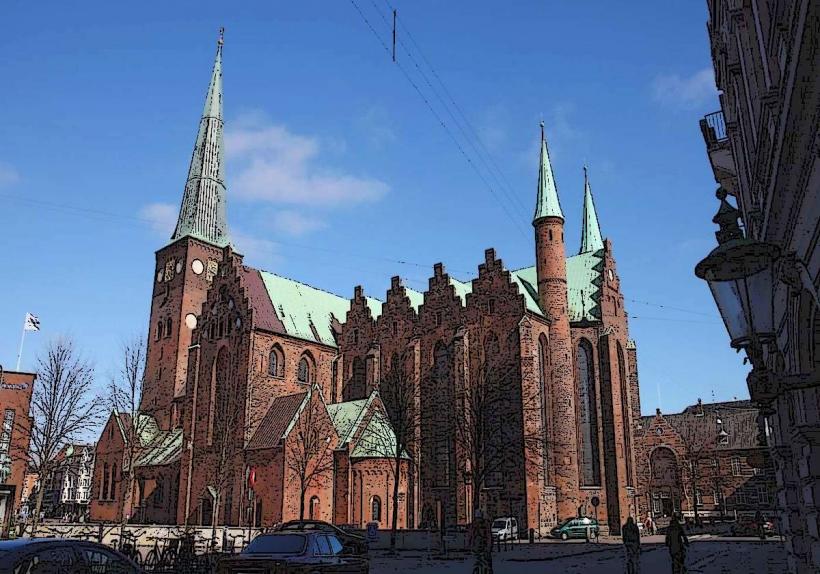Information
Landmark: Aarhus UniversityCity: Aarhus
Country: Denmark
Continent: Europe
Aarhus University (Aarhus Universitet), established in 1928, is one of Denmark's premier institutions of higher education and research. Located in the vibrant city of Aarhus, it is renowned for its academic excellence, innovative research, and beautiful campus. The university plays a pivotal role in the cultural and intellectual life of Aarhus and has a strong international presence.
Key Facts and Highlights
- Founded: 1928
- Motto: "Solidum petit in profundis" ("Seek a firm footing in the depths")
- Enrollment: Over 40,000 students
- Faculties: The university is divided into five faculties:
- Arts
- Health
- Natural Sciences
- Technical Sciences
- Business and Social Sciences
- Global Ranking: Aarhus University consistently ranks among the top 100 universities worldwide in various international rankings.
Campus and Architecture
Main Campus:
- Located in the central University Park (Universitetsparken), the campus is celebrated for its harmonious integration of architecture and nature.
- Designed by Danish architects C.F. Møller, Kay Fisker, and P.V. Jensen-Klint, it features iconic yellow-brick buildings with flat roofs, large windows, and clean lines, reflecting Functionalist design.
- The campus includes landscaped areas, rolling lawns, a small lake, and abundant green spaces, creating a serene environment for study and reflection.
Marselisborg Campus:
- Houses departments related to health sciences and is situated near the Marselisborg Forest.
Other Locations:
- Aarhus University also operates campuses in other cities, such as Emdrup (Copenhagen area) and Herning, to cater to specific programs and regional outreach.
Academic Excellence
- Interdisciplinary Approach: Aarhus University emphasizes interdisciplinary research and teaching, encouraging collaboration across faculties.
- Research Focus: It is a leader in cutting-edge research in fields such as climate science, sustainability, digital technologies, medicine, the humanities, and social sciences.
- Notable Achievements:
- Aarhus University researchers have contributed significantly to global studies on climate change, quantum physics, and economics.
- The university has produced Nobel Prize winners, including Jens Christian Skou, who won the 1997 Nobel Prize in Chemistry for his discovery of the sodium-potassium pump.
Student Life
Diverse Student Body:
- With students from over 120 countries, Aarhus University fosters a dynamic and inclusive academic environment.
Campus Facilities:
- Libraries: The Royal Danish Library and other department-specific libraries provide extensive resources.
- Cafeterias: Multiple dining options serve affordable meals.
- Student Housing: The university offers modern dormitories and apartments near the campus.
Student Activities:
- Aarhus University has a vibrant student culture with numerous organizations, clubs, and societies catering to diverse interests, including sports, arts, and academic pursuits.
- Friday Bars: Informal student-run events held weekly on campus are popular for socializing.
- Student Organizations: Groups like Studenterhus Aarhus organize activities, workshops, and cultural events for international and Danish students alike.
Research and Innovation
International Collaborations:
- Aarhus University partners with leading global institutions for research and exchange programs, fostering innovation and cross-border knowledge sharing.
Key Research Facilities:
- AU Ideas Center: Focused on fostering breakthrough innovations.
- Danish Centre for Food and Agriculture (DCA): Leading research in sustainable agriculture and food production.
Sustainability:
- Aarhus University is at the forefront of green energy research and hosts projects aimed at addressing climate challenges.
Attractions and Landmarks
The University Park:
- A scenic area with walking paths, a central lake, and beautiful green spaces, it’s ideal for relaxation and outdoor activities.
Aarhus University Observatory:
- Located within the campus, the observatory provides public stargazing events and educational sessions.
The Steno Museum:
- Part of Aarhus University, this museum highlights the history of science and medicine, along with interactive exhibits and a planetarium.
International Outlook
- Exchange Programs: Aarhus University participates in international student exchange initiatives, such as Erasmus+, providing opportunities for study abroad.
- English-Taught Programs: The university offers numerous undergraduate and postgraduate programs in English, attracting international students.
- Reputation: Its global connections and partnerships make it a hub for academic collaboration.
Accessibility and Transport
- The campus is centrally located and well-connected via public transportation, including buses and cycling paths.
- Aarhus University is easily reachable from Aarhus city center, making it convenient for students and visitors.
Conclusion
Aarhus University is a beacon of academic excellence, research innovation, and cultural integration. Its beautiful campus, dynamic student life, and global impact make it one of Denmark's most prestigious universities. Whether you're a student, a scholar, or a visitor, Aarhus University offers a rich experience in learning, culture, and community.

